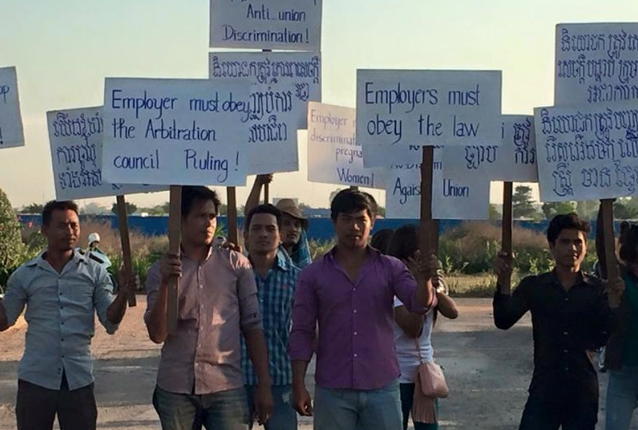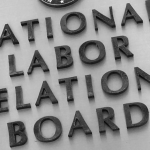Individuals and labor advocates around the world united today to demand an end to unjust retaliation against working people.
The repression of and retaliation against labor rights supporters is a global problem. In December of last year, Chinese authorities arrested 25 labor rights organizers and activists in the industrial province of Guangdong. Just two weeks ago, one of those leaders, Meng Han, was sentenced to 21 months in prison. This July, the Central Court in Seoul, South Korea, sentenced the head of the KCTU, the country’s largest union federation, to five years in prison for leading protests against government proposals that would harm working people. And on November 1, the president of the Iranian Teachers’ Trade Association was given six years in prison for organizing a strike.
The imprisoned KCTU leader in South Korea is just one example of retaliation against working people in democracies. One also can look at the Mexican government’s harsh response to educators who protested against anti-student and anti-teacher proposals on funding and hiring. According to the Center for Economic and Policy Research, more than 30 percent of employers in the United States retaliate against working people trying to come together in union.
Opposition to organizing unfortunately isn’t new. That’s why the global day of action against trade union repression was created – to support union members and organizers fighting for worker’s rights and lives. It also calls for solutions to improve the lives of millions of working people, like enacting stronger rules against gender-based violence and an end to the mistreatment and exploitation of migrant workers.
Repression often comes at the hands of corporations or their special interest groups, who have their headquarters thousands of miles away. For example, the U.S. Chamber of Commerce successfully lobbied the Chinese government against a proposed rule that would strengthen protections for temporary employees. This eventually resulted in corporations operating in the country maintaining a contingent, temporary workforce, where they never have to hire the people who work for them as permanent employees.
With the new president-elect actively courting partnerships with politicians who stand against working people in the UK and France, workers’ rights advocates in the United States should broaden their approach to building an economy that works for everyone. Supporting activists when they are imprisoned, building alliances with unions abroad (like the UFCW and Mexico’s Frente Autentico del Trabajo), and looking at new ways for working people to negotiate across borders (like the Asia Floor Wage Alliance) are more important than ever.
In these uncertain times, solidarity is key. Factory workers in Chicago who make the iconic Oreo cookies are heeding this lesson in their campaign to stop Mondelez International from closing their plant and shifting jobs to Mexico. Chicago members of The Bakery, Confectionery, Tobacco Workers and Grain Millers International Union recently aligned with the unions of people who make Oreos and other snacks for their parent company in Mexico and with millions of food workers across the world. They are creating a united front alongside their international colleagues to secure a sustainable living for anyone working for the highly profitable food giant, whether in Atlanta, or Monterrey.
This type of alliance is just one of many examples that shows how unions of working people can forge common ground among those who work for the same employer or even just in the same industry, all around the world. To come together, we need to build bridges across countries, cities, political parties, and borders, to unite everyone, whether it’s a garment maker in Bangladesh, a banana picker in Guatemala, or a coal miner in China.





